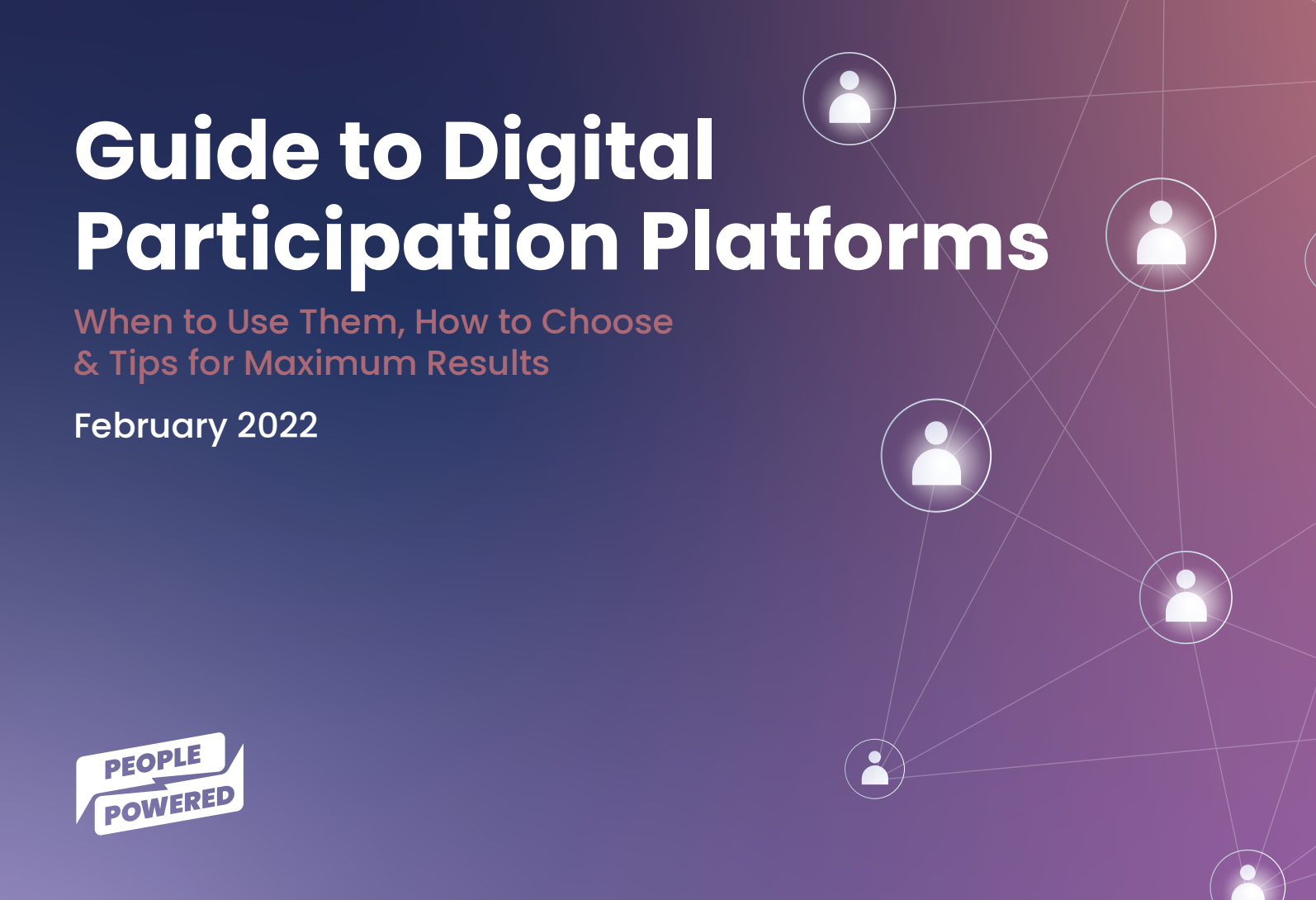Five ways we’ve advanced global participatory budgeting research
/In April 2020, we developed a Global Participatory Budgeting (PB) Research Agenda to help guide and set priorities for PB research around the world. Two years on, we’ve accomplished a lot toward this agenda. In this post we share updates on our progress.
The research agenda drew on a year-long co-design process supported by the William and Flora Hewlett Foundation and led by Reboot. To ensure that the agenda reflected diverse views, People Powered developed it with a Global PB Research Board, and sought feedback from the broader community of researchers and practitioners.
Read on for a recap of what we’ve done and what’s still to come. Then learn more about the publications of individual PB Research Board members in our next research post.
1. The Participation Playbook
Priority project: Mapping and assessing PB models
Map and categorize the diverse existing models of PB, both to lay the groundwork for further research to compare impacts, and to provide implementers with design guidance on design options.
What we’ve accomplished:
We’ve developed the Participation Playbook, a free, open-source, interactive, user-tailored tool to help governments and civil society organizations plan PB and other participatory processes. The playbook, which we plan to launch in June, will answer the key design questions faced by PB advocates, policymakers, and program implementers, supplemented by case studies and other resources. In addition to PB, the playbook will provide guidance for implementing citizens’ assemblies and juries, legislative theater, and participatory policymaking.
2. Impacts of Participatory Budgeting
Priority project: Large-scale impact evaluation—PB’s impacts on democracy, governance, and quality of life
Use a comparative methodology to identify how PB program designs, socio-political contexts, political motivations, and state capacities affect the impact of PB on democracy, governance, and quality of life.
What we’ve accomplished:
Global PB Research Board members teamed up with practitioners to synthesize the existing research on the impacts of participatory budgeting on people, communities, and governments. We presented the resulting insights in a series of seminars, briefs, and articles. Check out our new resource, “Impacts of Participatory Budgeting: What We Know,” for a comprehensive overview.
3. Guide and Ratings for Digital Participation Platforms
Priority project: What are the strengths, weaknesses, and impacts of digital PB tools?
Assess the use of digital tools in PB processes.
What we’ve accomplished:
We developed the Digital Participation Platforms Resource Center to help policymakers and civil society advocates and reformers understand the pros and cons of the many comprehensive civic tech platforms that have emerged, then make the right choice for their contexts. Options range from purchasing one of the many ready-made platforms, to customizing an open-source tool, to developing one from scratch. This center offers two features: a guide to digital participation platforms and ratings of those we recommend, developed with an international panel of digital participation experts.
4. Participatory Budgeting via National Law
Priority project: National PB laws—Best practices
Assess the recent wave of National PB Laws and identify best practices.
What we’ve accomplished:
Written by members of the Global PB Research Board, “Participatory Budgeting via National Law: What Works and What Doesn’t” describes the efforts of 11 countries to create a national legal framework for PB, along with key lessons from these experiences. The report includes case studies, assessments of their strengths and areas for improvement, common challenges, and recommendations for advocates and practitioners considering this approach. We launched the report during last year’s Open Government Partnership Global Summit.
5. People Powered University
Priority infrastructure: PB University online courses
Develop and produce a series of online courses on PB research, to make research findings more accessible.
What we’ve accomplished:
Through People Powered University, we’ve delivered 10 online courses and seminars designed to address common challenges faced by participatory democracy implementers. Topics included how to engage disabled people, immigrants, and refugees in PB; how to use PB to address climate change; and the impacts of PB on governance and well-being, civil society and political participation, and education and learning. Each course drew on PB research and practice to provide actionable recommendations for practitioners.
What’s Next
We’ve done a lot together, but work remains to advance the priorities outlined in the agenda. Here’s what we’re looking forward to:
Launching the Participation Playbook in late June.
Implementing a learning management system to make People Powered University courses more accessible for practitioners.
Funding research that meets practitioners’ needs, through our research grants program.
We hope you’ll join us in this work! We invite you to explore our new resource on the impacts of PB, and to learn more about our research.








